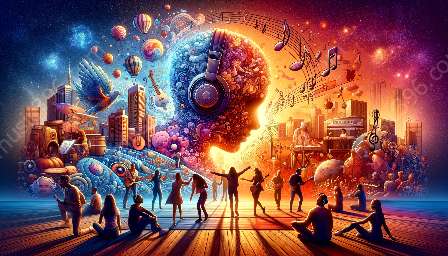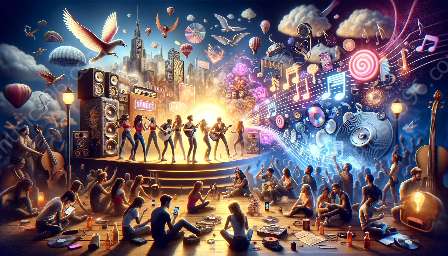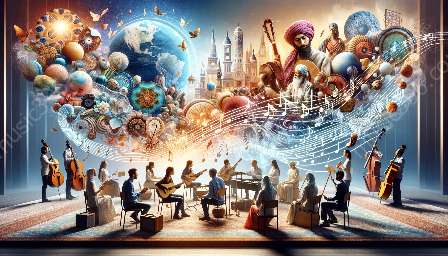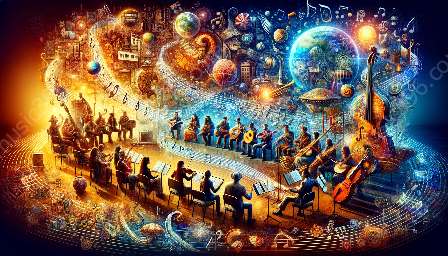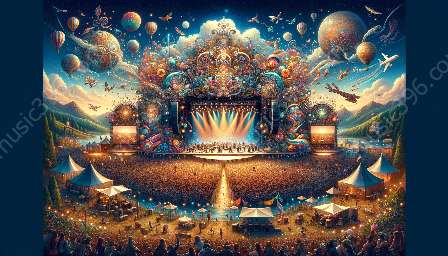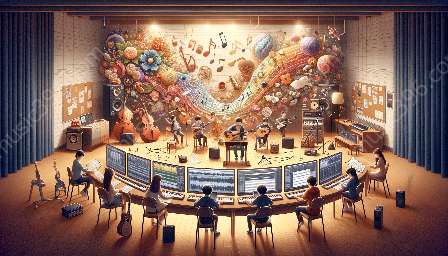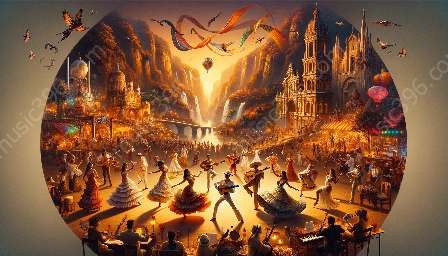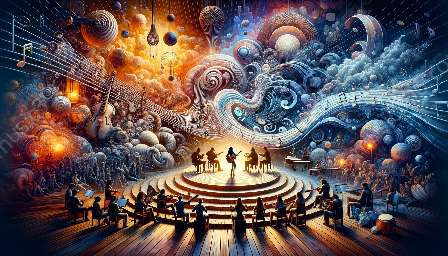Popular music has long been a significant element in youth culture, serving as a powerful medium for fostering inter-cultural dialogue and understanding. In today's interconnected world, the influence of popular music in shaping the cultural perspectives of young people cannot be understated. This topic cluster explores how popular music plays a crucial role in bridging diverse cultural backgrounds and promoting unity among youth.
How Popular Music Influences Inter-Cultural Dialogue
Popular music acts as a universal language that transcends linguistic and cultural barriers. Through its melodies, rhythms, and lyrics, music has the capacity to convey emotions and experiences that resonate with individuals from varying cultural backgrounds. It provides a shared platform for young people to express their ideas, concerns, and aspirations, regardless of their cultural heritage.
One of the key ways in which popular music fosters inter-cultural dialogue is through its ability to highlight and celebrate the diversity of musical styles and traditions. By embracing and integrating elements from different cultures, popular music encourages cross-cultural exchange and collaboration among artists and audiences. This process enriches the musical landscape and promotes mutual respect and appreciation for each other's cultural heritage.
Globalization, Technology, and Cultural Fusion
With the advent of digital technology and the widespread accessibility of music through online platforms, young people are exposed to a wide array of musical genres and artists from around the globe. This exposure contributes to the blending and fusion of diverse musical influences, creating a global sonic tapestry that reflects the interconnectedness of cultures. As a result, youth are more open to embracing music from different parts of the world, leading to a greater inter-cultural dialogue and exchange.
Popular Music as a Catalyst for Social Change
Beyond its role as a form of entertainment, popular music often serves as a voice for social and cultural movements. Many influential artists use their platform to address issues of social justice, equality, and diversity, thereby sparking conversations about inter-cultural understanding and acceptance among young audiences. Music has the power to unite youth in advocating for positive change and fostering empathy towards marginalized communities.
The Impact of Music Festivals and Events
Music festivals and events play a significant role in bringing together youth from diverse cultural backgrounds. These gatherings serve as communal spaces where young people can immerse themselves in different musical traditions, interact with individuals from varied cultures, and celebrate their shared passion for music. Such events contribute to breaking down cultural barriers and promoting a sense of belonging and inclusivity among attendees.
Popular Music and Cultural Identity
For many young people, popular music is intertwined with their cultural identity. It serves as a means of connecting with their heritage and roots, as well as navigating the complexities of living in a multicultural society. Music empowers youth to express pride in their cultural backgrounds while also embracing the influences of other cultures, forging a sense of unity amid diversity.
Challenges and Opportunities
Despite the positive impact of popular music on inter-cultural dialogue, there are also challenges associated with cultural appropriation, misrepresentation, and stereotyping within the music industry. It is essential for youth to critically engage with these issues and strive for authentic representation and respect for cultural diversity in music.
Conclusion
Popular music serves as a catalyst for inter-cultural dialogue among youth, fostering understanding, empathy, and appreciation for diverse cultural perspectives. As the globalized landscape continues to evolve, the role of music in promoting harmony and unity among young people becomes increasingly vital. By recognizing the power of popular music to transcend cultural boundaries and bring about positive social change, the future generation can actively engage in building a more inclusive and interconnected world.



